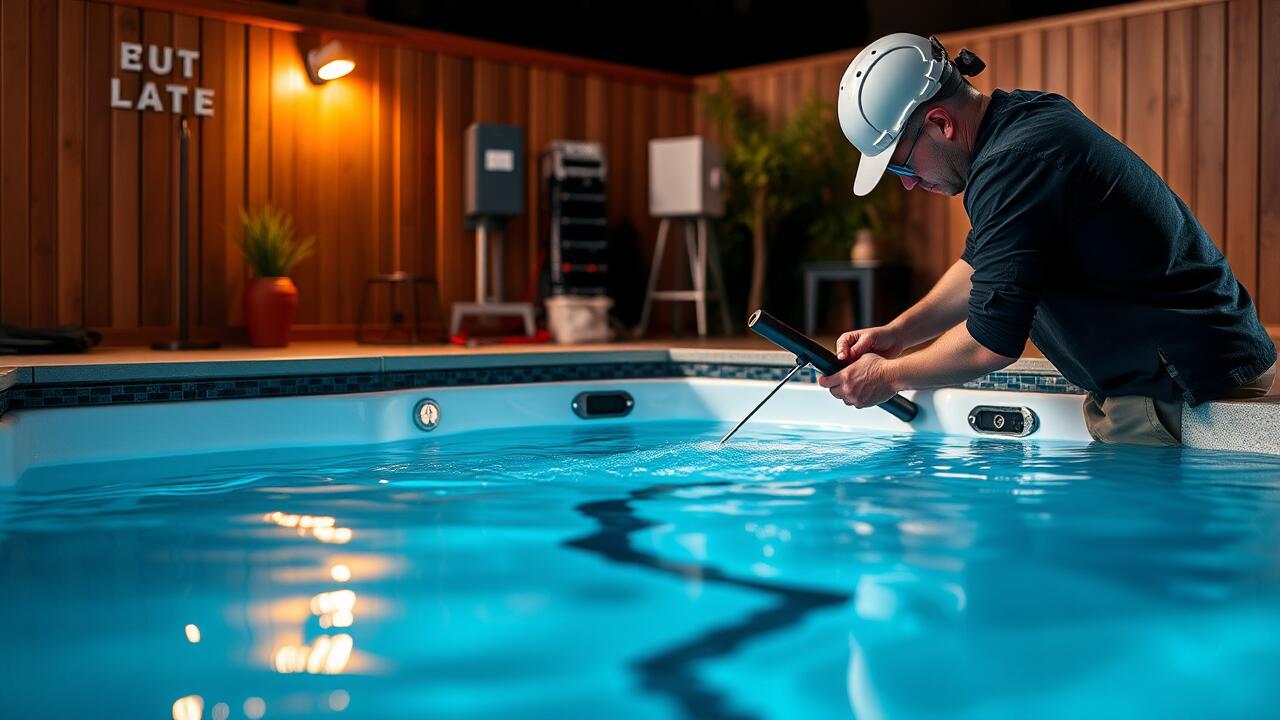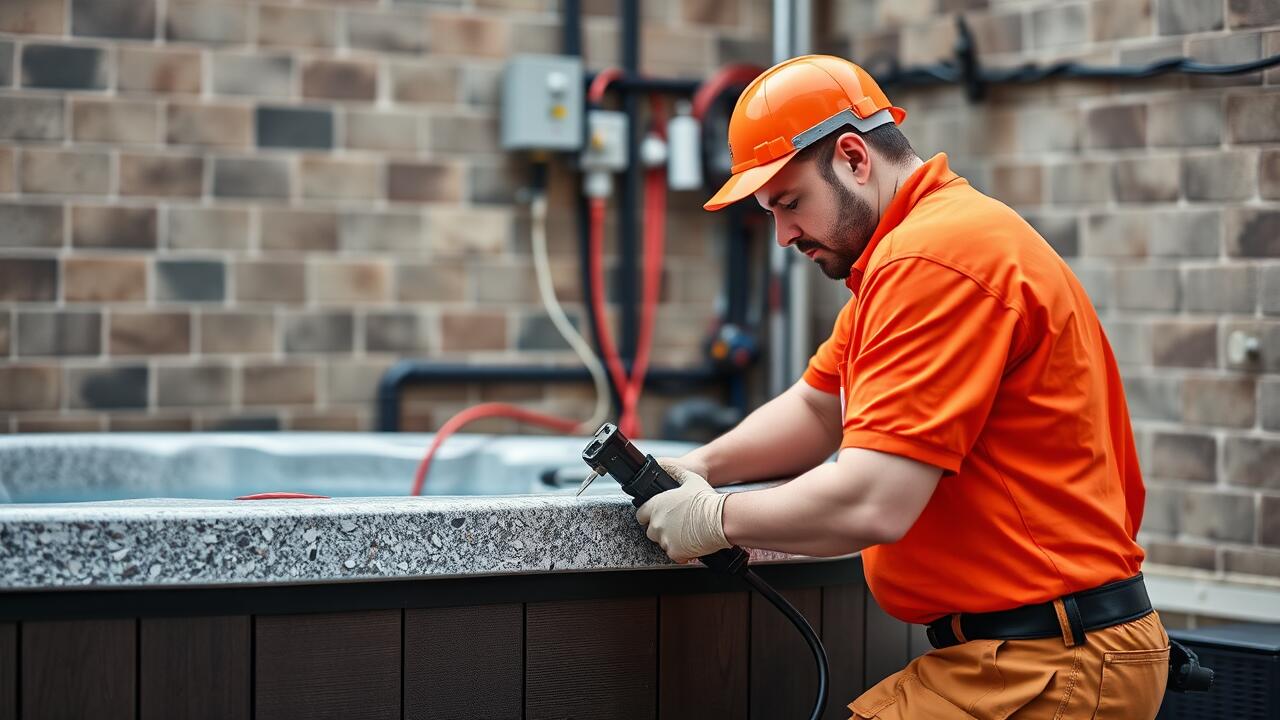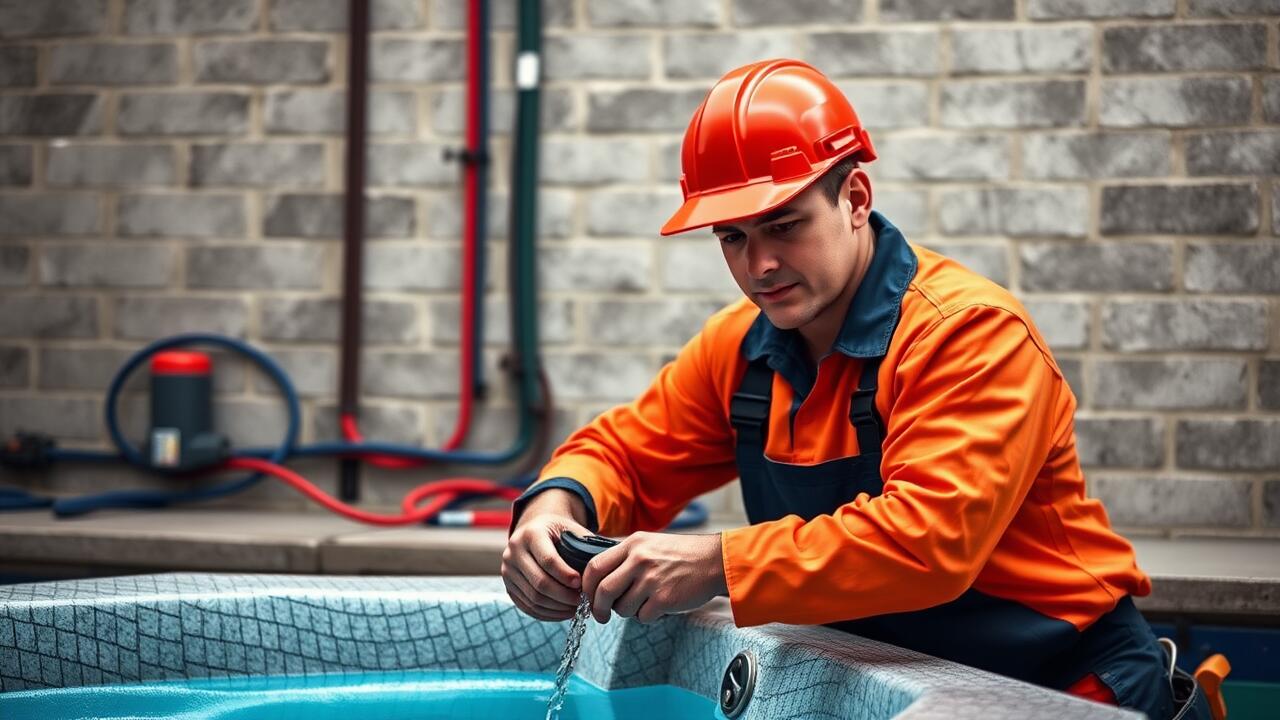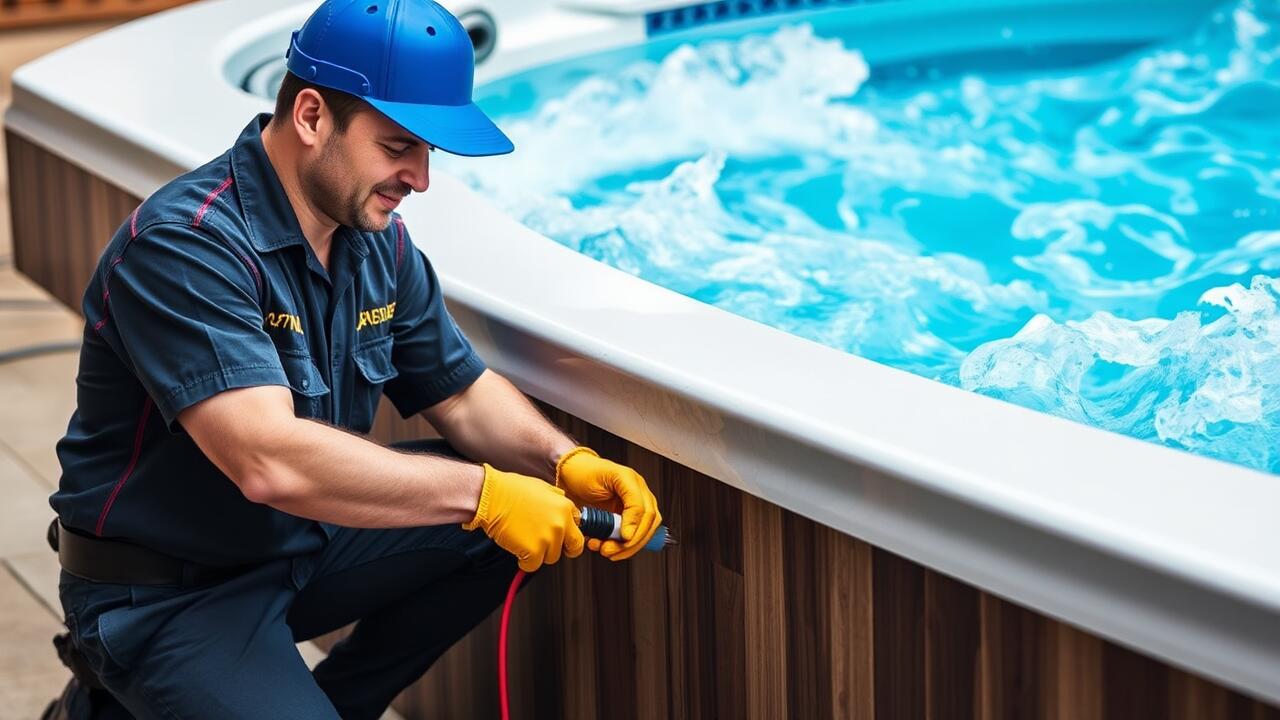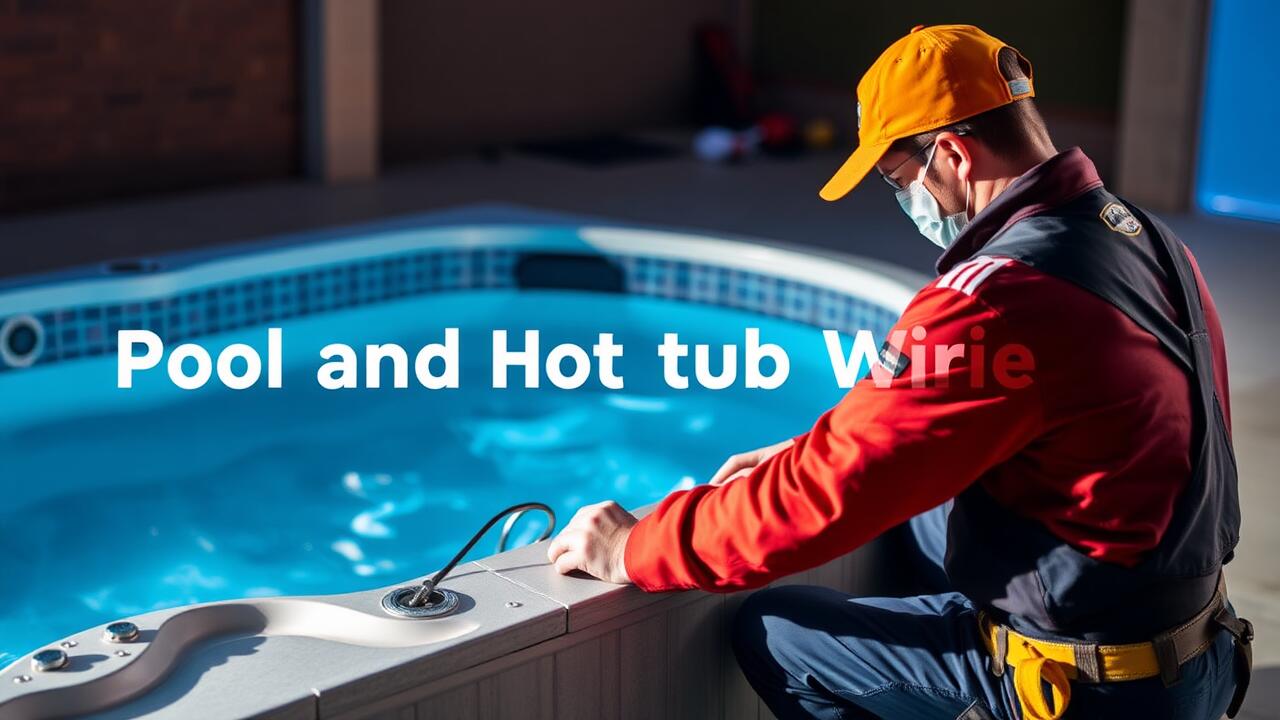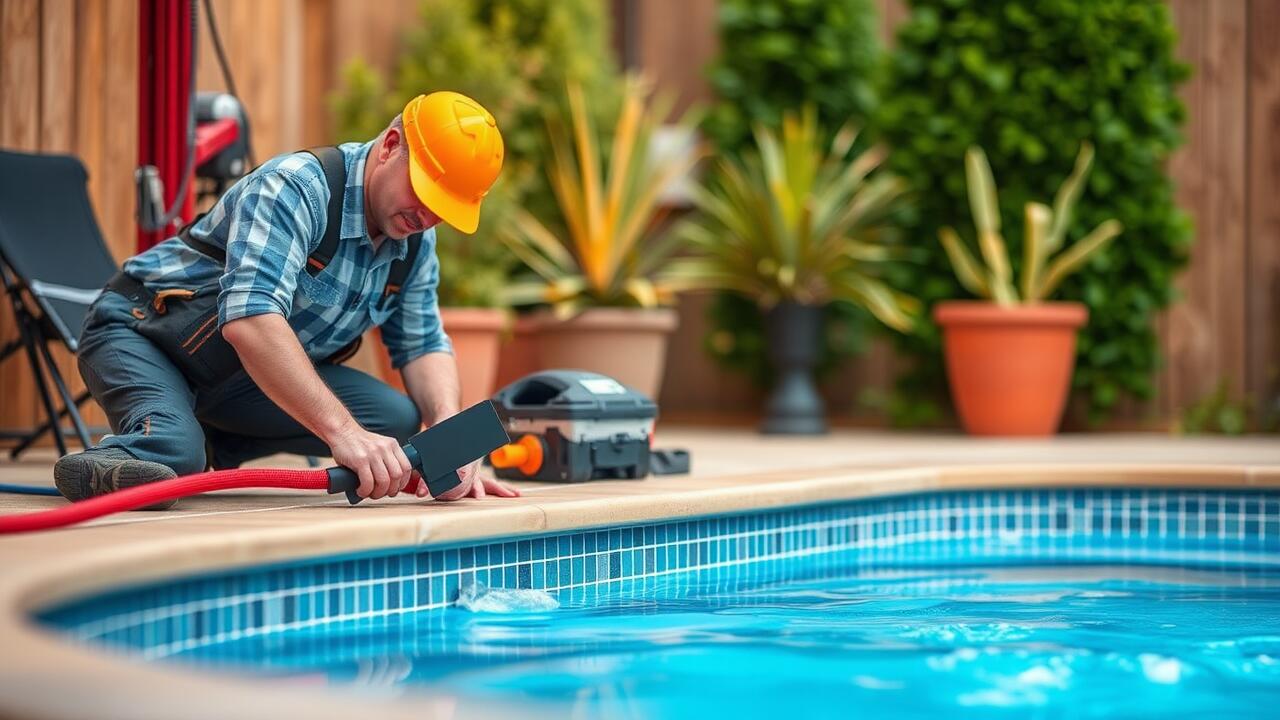
Properly Installing Grounding Systems
Grounding systems play a critical role in ensuring the safety of outdoor hot tubs. Proper installation requires a dedicated grounding conductor that connects the hot tub to an established ground point, such as a grounding rod or the home’s grounding system. This connection helps prevent electrical shock hazards by providing a direct path for stray currents to return to the ground. Ensuring that the grounding system meets local code requirements is essential, especially in diverse weather conditions.
Properly installing a grounding system also involves checking connections for corrosion and ensuring that the grounding wire is appropriately sized. In regions like Greater Heights, Houston, where humidity can affect electrical systems, these precautions become even more vital. Pool and Hot Tub Wiring in Greater Heights, Houston must include considerations for frequent rains and temperature fluctuations. By selecting quality materials and following guidelines laid out by the National Electrical Code, you can ensure long-lasting safety for your outdoor hot tub installation.
Importance of Grounding in Hot Tubs
Grounding is essential for the safe operation of hot tubs, as it provides a reliable path for electrical faults. In the event of a short circuit or equipment failure, a well-grounded hot tub can help prevent electric shock to users and reduce the risk of fire. This safety measure is particularly important given the presence of water, which can amplify electrical hazards. Professionals recommend that installations comply with the local electrical code, which often includes specific grounding requirements for pool and hot tub wiring in Third Ward, Houston.
A proper grounding system ensures that excess electrical energy is safely dispersed into the earth. This function is crucial not only for user safety but also for protecting expensive electronic components within the hot tub. Any disruption in the grounding system can lead to dangerous situations, making it vital for homeowners to understand the importance of this practice. Regular checks and maintenance of the grounding connections can help mitigate risks associated with electrical failures.
Wiring Techniques for Outdoor Environment
When wiring for outdoor hot tubs, using the right techniques is essential to ensure longevity and safety. Utilizing underground conduits helps protect wiring from environmental factors. This not only keeps the electrical system safe but also minimizes the risk of damage caused by moisture, pests, or debris. Proper cable selection is critical; employing outdoor-rated cables can withstand exposure to the elements, enhancing durability.
In regions like Memorial, Houston, the weather can be unpredictable, making adequate weatherproofing crucial. Sealing connections with appropriate insulation prevents water ingress that could lead to short circuits or other electrical failures. It's also beneficial to elevate electrical components away from potential water accumulation areas. Pool and Hot Tub Wiring in Memorial, Houston, should always include these considerations to ensure compliance with safety codes and reliable operation.
Weatherproofing and Cable Protection
Weatherproofing is crucial for maintaining the safety and functionality of outdoor hot tub wiring. Utilizing appropriate materials designed to withstand the elements can prevent corrosion and damage. This includes using weather-resistant conduit and connectors that can endure moisture and extreme weather conditions. The installation of a proper barrier can help protect wiring from rain, snow, and other environmental factors that could lead to electrical hazards.
Cable protection is equally important in outdoor settings. Investing in durable cables specifically rated for outdoor use enhances safety and performance. When installing wiring, keeping cables elevated and away from areas prone to flooding can further mitigate risks. For anyone considering such installations, understanding the nuances of Pool and Hot Tub Wiring in Alief, Houston is essential for achieving both safety and long-term reliability.
Inspecting Electrical Components Regularly
Regular inspection of electrical components in outdoor hot tubs is essential for ensuring safety and reliable operation. Over time, wear and tear can lead to issues that not only compromise performance but pose a significant safety risk. Components such as wiring, connections, and breaker systems should be examined periodically for signs of damage like fraying, corrosion, or loose connections. Catching these issues early can prevent more extensive damage and potential electrical hazards, making inspections a crucial part of maintenance.
In regions like West University Place, Houston, where outdoor hot tubs are popular, it's important to prioritize these inspections. Consider enlisting professionals specialized in Pool and Hot Tub Wiring in West University Place, Houston, who can provide expert assessments. They possess the knowledge to identify problems that might go unnoticed by the untrained eye, ensuring that your hot tub remains safe to use and operates efficiently. Regular maintenance not only enhances the lifespan of the equipment but also contributes to a worry-free recreational experience.
Signs of Wear and Tear to Watch For
Regular inspections of electrical components in outdoor hot tubs can prevent potential hazards. Look for signs such as frayed wiring, which can expose conductive materials and increase the risk of electrical shock. Discoloration around connections or visible corrosion are also indicators that components may be failing. These issues can escalate quickly, making early detection crucial for maintaining safety.
Additionally, examine any junction boxes and outlets for damage or water intrusion. Moisture can significantly compromise the integrity of these components. For those managing Pool and Hot Tub Wiring in Alief, Houston, staying vigilant about these signs ensures that the system remains operational and safe, reducing the likelihood of costly repairs down the line.
FAQS
Why is grounding important for outdoor hot tubs?
Grounding is crucial for outdoor hot tubs as it helps prevent electrical shocks and reduces the risk of electrical fires. It ensures that any stray currents are safely directed into the ground.
What are the best practices for wiring techniques in outdoor environments?
Best practices for wiring techniques in outdoor environments include using weather-resistant cables, ensuring all connections are secured and protected from moisture, and following local electrical codes to avoid hazards.
How can I weatherproof my outdoor hot tub wiring?
To weatherproof your outdoor hot tub wiring, use weatherproof junction boxes, seal any entry points from moisture, and select cables that are rated for outdoor use. Additionally, consider using conduit for added protection.
How often should I inspect the electrical components of my hot tub?
It is recommended to inspect the electrical components of your hot tub at least once a year or more frequently if you notice any signs of wear or damage. Regular inspections help ensure safety and prevent costly repairs.
What are the signs of wear and tear I should watch for in my hot tub's wiring?
Signs of wear and tear to look for include frayed or damaged cables, loose connections, discoloration or burning around electrical components, and any unusual sounds or smells coming from the electrical system. If you notice any of these, it's important to address the issue immediately.
